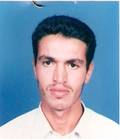Geneva 5 July 2011
The United Nations Committee against Torture has condemned Algeria for the death under torture of Mr. Djilali Hanafi, a 32 year old shopkeeper and father of two children who was arrested on 1 November 1998 in Mechra Sfa. Mr. Hanafi had been released on 3 November, only to die a few hours later at his home as a result of the torture inflicted upon him at the gendarmerie headquarters in Mecchra Sfa. This condemnation is the first ever to be handed down by the Committee against Torture concerning Algeria.
For years the relatives of the victim have tried to obtain justice. However no enquiry whatsoever was ever opened up, since the authorities asserted that the victim had died of natural causes. In April 2008, TRIAL brought the case before the Committee against Torture, the UN body in charge of overseeing the respect of the Convention against Torture and other Cruel, Inhuman or Degrading Treatment or Punishment, ratified by Algeria in 1989
In its June 2011 decision, which has just been made public, the Committee decided that the facts did indeed “constitute torture” under the terms of the Convention, and that the demise of the victim was the direct outcome of such torture. According to this UN agency, “during the whole time the victim was detained and despite corroborative evidence from witnesses indicating that he had been tortured, at no time did the authorities institute proceedings nor did they order a doctor to check the state of his health despite the fact that his fellow prisoners had alerted the guards that the victim was in a critical state. Furthermore, despite the fact that the death certificate made mention of ‘death under suspicious circumstances’ at no time did the public prosecutor take up the case”.
Only within the context of the procedure brought before the Committee did the family at last have access to the autopsy report carried out just before the victim was buried. The report concluded that the victim had died as a result of heart failure. TRIAL however submitted this report to several legal medical experts who for their part noted its incomplete and dubious nature, which could not allow a conclusion on the real cause of his death.
Contrary to the terms of the Convention against Torture, none of the torturers has been put on trial or punished. The Committee considered in this respect that “no impartial and serious criminal inquiry whatsoever was ever instituted in order to shed light on the death of the plaintiff’s husband despite the passing of 12 years since the events occurred, a fact not contested by the State party. The absence of any enquiry is even more inexplicable given that the death certificate issued in April 2006 made reference to the suspicious circumstances surrounding the death of the victim”!
The UN organ therefore concluded that Algeria was in violation of articles 1, 2 paragraphs 1, 11 12, 13 and 14 of the Convention against Torture. Moreover, the Committee denounced as “inacceptable”, and incompatible with the Convention, the practice of interrogating former fellow prisoners as well as the family of the deceased with the intended purpose of making them withdraw their previous testimony before the Committee.
According to Philip Grant, Director of TRIAL, “Algeria cannot continue its policy of impunity. The victims of torture and other serious violations committed during the civil war have the right to know the truth and to obtain justice. The Committee against Torture has handed down a verdict which sets an important legal precedent”. For Mr. Grant “cases of torture like that of Djilali Hanafi must be the subject of a thorough enquiry and the authors of these acts must be prosecuted and punished. A true criminal investigation should be opened immediately”
Under the terms of the decision, Algeria is under the obligation to initiate an impartial enquiry into the events in question with the aim of bringing to justice the persons responsible for the treatment inflicted on the victim. Algeria has been given 90 days to inform the Committee on measures taken, including the compensation awarded to the wife of the deceased.
TRIAL is currently handling 64 cases before different international instances (European Court of Human Rights, the Human Rights Committee and the Committee against Torture) concerning cases of enforced disappearances, extra judicial executions and torture in several countries including Algeria, Bosnia Herzegovina, Libya and Nepal. Sixteen of these cases concern Algeria.
General Context
The events concerning the case in question occurred within the context of the violence that devastated Algeria during the 1990s. Under cover of the fight against terrorism, the Algerian government set in place a repressive system of exceptional violence. Summary executions, enforced disappearances, arbitrary detention, torture and other violent acts committed by the State security apparatus between 1992 and 1998 can be counted in tens of thousands.
Nevertheless, Algeria has never accepted (and far less given reparations) the consequences of such violations. Indeed the State has never taken upon itself to render justice for such crimes, to bring proceedings against and punish those responsible and to provide proper reparations for the victims or their close relatives. On the contrary, a real policy of impunity continues to apply and has even been legalized with the promulgation of the Ordinance bringing into application the Charter for Peace and National Reconciliation in February 2006, which forbids victims of exactions committed during this period from taking legal action with a view to obtaining justice.

 M. Aouabdia has never been seen since. His spouse has moved heaven and earth to uncover news about his fate, but to no avail.
M. Aouabdia has never been seen since. His spouse has moved heaven and earth to uncover news about his fate, but to no avail.
 The organizations recently obtained a prosecutor’s report into the death of Ismail Al Khazmi, a 30-year-old engineer, showing that the public security secretary, or minister, at the time, Gen. Saleh Ragab, refused to allow the prosecution to open an investigation into the role of public security agents in the death. Al Khazmi’s case highlights the lack of accountability for Internal Security Officers, the three groups said.
The organizations recently obtained a prosecutor’s report into the death of Ismail Al Khazmi, a 30-year-old engineer, showing that the public security secretary, or minister, at the time, Gen. Saleh Ragab, refused to allow the prosecution to open an investigation into the role of public security agents in the death. Al Khazmi’s case highlights the lack of accountability for Internal Security Officers, the three groups said. Mr. Izzat Yousef Al-Maqrif was a member of the Libyan army until 1973 when he was accused of taking part in an attempt to overthrow the government of Colonel Gaddafi and held in prison for almost one year after which he was discharged from the army. Mr. Izzat Yousef Al-Maqrif and his family fled the country in 1981 and lived from 1984 onwards in Cairo, Egypt. There, he exercised activities as a senior member of the Executive Committee of the National Front for the Salvation of Libya (NFSL).
Mr. Izzat Yousef Al-Maqrif was a member of the Libyan army until 1973 when he was accused of taking part in an attempt to overthrow the government of Colonel Gaddafi and held in prison for almost one year after which he was discharged from the army. Mr. Izzat Yousef Al-Maqrif and his family fled the country in 1981 and lived from 1984 onwards in Cairo, Egypt. There, he exercised activities as a senior member of the Executive Committee of the National Front for the Salvation of Libya (NFSL). Mr. Jaballa Hamed Matar was also arrested in 1970 and detained for 6 months. He worked a few years for the government and then he resigned because of a policy disagreement. He worked as a businessman from 1973 to 1978 in Libya but, realising it was no longer safe to remain in Libya, joined his family in Egypt in 1979, where they spent a further 11 years in exile. While in Cairo, Mr. Jaballa Hamed Matar was a member of the Executive Committee of the NFSL. As such, he wrote many articles calling for democracy, the rule of law and justice in Libya.
Mr. Jaballa Hamed Matar was also arrested in 1970 and detained for 6 months. He worked a few years for the government and then he resigned because of a policy disagreement. He worked as a businessman from 1973 to 1978 in Libya but, realising it was no longer safe to remain in Libya, joined his family in Egypt in 1979, where they spent a further 11 years in exile. While in Cairo, Mr. Jaballa Hamed Matar was a member of the Executive Committee of the NFSL. As such, he wrote many articles calling for democracy, the rule of law and justice in Libya.